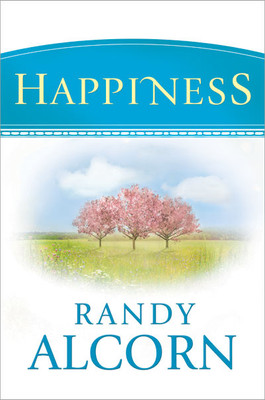I find that most Christians are surprised but open to these ideas about happiness, including that God is a happy God and offers us His own happiness. Yet some remain doggedly determined to believe and teach that God doesn’t want His children happy and happiness is inherently wrong. This is so strange, because what loving father doesn’t want his children full of joy and happiness, in the right sense?
In many cases believers respond to my books on the subject as I would respond to others who’ve adopted a modern feel-good message that is contrary to Scripture, such as universalism or the concept that there is no hell.
Because they’ve heard in Bible teaching churches that God wants us to be holy, not happy, and because they’ve read favorite Christ-centered writers who have said this, they conclude that the concept God is happy and that He wants His children happy is a modern idea that is really a heresy.
 That’s why in the comprehensive Happiness book I spent so much time developing the theme of English-speaking Christians throughout history, back to the Puritans, regularly affirming that God is happy, wants us happy, and that holiness and happiness are ultimately inseparable. The anti-happiness mentality in the church has developed only in the last century, and it was a departure from what God’s people widely believed before that. While it did have some good intentions, namely to keep people from pursuing happiness in sin, I think it really backfired.
That’s why in the comprehensive Happiness book I spent so much time developing the theme of English-speaking Christians throughout history, back to the Puritans, regularly affirming that God is happy, wants us happy, and that holiness and happiness are ultimately inseparable. The anti-happiness mentality in the church has developed only in the last century, and it was a departure from what God’s people widely believed before that. While it did have some good intentions, namely to keep people from pursuing happiness in sin, I think it really backfired.
The irony is that this is actually a feel-good message that conforms to Scripture! It truly is good news, what Isaiah 52:7 calls the “good news of happiness” and what Luke 2:10 says is “good news of great joy that will be for all the people.”
It reminds me of the people who‘ve not heard about the biblical concept of the resurrection and the New Earth, and don’t understand what that entails and implies. They read my Heaven book and other things and conclude, “I’ve never heard this in my church, so it can’t be true.” When I talk about eating and drinking, and celebrating and culture and arts and music and learning, and likely even sports on the New Earth, they think, “Here we go again, another feel-good heresy.”
Yes, we are right to oppose any message, feel-good or otherwise, that is opposed to God’s Word. But ironically, we cling to certain false doctrines believing them to be orthodox, including the concept of a ghostly afterlife for all eternity, and the notion that God doesn’t want us to be happy. The true biblical teachings on these subjects draw people toward the Bible and the Christian faith; the false ones push them away.
It’s true the Bible teaches some hard things that people are prone to reject, and we dare not apologize for these. But how ironic that we take some wonderful things the Bible teaches and then seemingly work overtime to deny them or make them seem unattractive!
It’s like we think the spiritual high ground is to portray the Christian faith as negatively and stoically as possible, so as not to succumb to what so many are doing which perverts the gospel of Jesus to make it palatable.
But think of the promises of Jesus to set us free (John 8:32, Galatians 5:1, Revelation 5:1), to give us abundant life (John 10:10), and to enjoy Heaven and the New Earth as resurrected people forever while being delivered from the hell we deserve (Revelation 21–22). That part of Scripture is actually a feel-good message, and it's also true! If the “good news” of Jesus doesn't make us happy, we aren’t understanding what good news actually means.
For more on happiness, see Randy’s books Happiness and God’s Promise of Happiness, the devotional 60 Days of Happiness, and his DVD series Happiness 101.
Photo by Priscilla Du Preez on Unsplash




